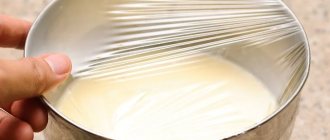The benefits or harms of coffee with milk, who should give up coffee and why? In fact, coffee with milk in reasonable quantities is possible for all people who have no contraindications to this drink.
But many people simply forget that coffee can not only be invigorating and tasty, but also harmful to your body. After all, how can you refuse an incredibly aromatic mug of coffee with fresh milk? Easily! In this article we will try to analyze all the pros and cons of this drink and its effect on our body.
Coffee with milk: types of drinks
For the majority of the population, a cup of black coffee in the morning is already a ritual. Some even believe that the day is lost without a cup of coffee, and their mood may depend on the consumption of such a drink.
Those who cannot drink large quantities of coffee choose coffee with milk. And there are now more than enough such varieties of coffee. Let's try to figure out the most popular coffee with milk and more:
- Latte - this drink is known throughout the world, it was invented by the Italians. He is adored by both young and old. Delicate creamy taste and incredibly delicate foam that resembles the taste of clouds. When preparing this drink, foamed milk is usually used and combined with coffee in a three to one ratio. That is, coffee should fill 1/3 of the space of the mug.
- Latte macchiato - all the ingredients in this drink are similar to latte, but the whole trick is the three-layer coffee. Coffee is poured into the warm milk in a thin stream, and the most delicate milk foam goes to the top. And you get a three-layer coffee drink.
- Cappuccino . This drink can be called a classic. Since it includes only 2 components: coffee and milk in equal proportions.
Types and varieties of coffee
Before talking about the types and varieties, it is necessary to clarify that out of all the diversity there are four main types of coffee trees: Arabica, Robusta, Liberica and Excelsa. Varieties obtained through selective breeding are hybrids of different types of coffee trees with unique properties inherent only to them.
Arabica
This is the main and oldest type of coffee tree, which is widespread in Africa. Arabica has many subspecies cultivated by humans. It was introduced and successfully took root in India, Asia, Central and South America.
Arabica is the most popular and cultivated variety in the world. About 60% of all coffee plantations are Arabica. Mainly grown in tropical countries.
Robusta
Congolese or Robusta coffee. Another ancient type of coffee tree, rivaling Arabica in popularity. Africa is also considered the birthplace of robusta. Its distinctive feature is that this tree is less demanding than Arabica and can ripen where Arabica does not take root.
Benefits of coffee with milk
Now let’s try to understand the benefits of coffee with milk for the human body.
So, the first advantage can be considered energy. That is, coffee awakens the nervous system and thus improves performance. How can regular coffee improve performance, you ask?
In fact, coffee helps the body invigorate and eliminate drowsiness, get rid of lethargy and apathy. So that in general you can concentrate your attention on the subject you need. Few people know that coffee helps the continuous functioning of the gastrointestinal tract.
All these advantages are due to the fact that coffee contains a large amount of acids, antioxidants, and macroelements. They are also rich in calcium, iron, and fluorine. Which help to activate and revitalize your body in the morning, and more.
Scientists have proven that coffee with milk causes less harm to the gastric mucosa than black coffee. Adding milk to coffee also helps reduce the effect on the nervous system and blood pressure.
Harm from coffee
With moderate consumption of the natural product, no harm to the human body was detected. Its use is not recommended for diseases of the digestive system, as it increases the acidity of gastric juice. During pregnancy and breastfeeding, the use of coffee products is completely contraindicated. One of the most negative properties of invigorating kernels is their ability to become addictive. Dependence occurs gradually and leads to an increase in the daily dose. In case of an overdose or without periodically receiving a dose, when addiction has already developed, a person begins to feel: apathy, irritability, weakness, drowsiness, nausea, headache, tinnitus, muscle pain. Systematic use leads to overexcitation and wear and tear of the nervous system. Constant excessive load on it leads to depletion of nerve cells and disrupts the coherence of all organs and systems. Long-term overexcitation of the cerebral cortex increases the risk of psychosis, paranoia, unmotivated outbursts of aggression and epilepsy. Caffeine stimulates the heart and causes it to beat faster, which leads to increased blood pressure. And although this effect is short-term, frequent consumption of the drink significantly increases the risk of developing coronary heart disease and arterial hypertension. A drink prepared by brewing is more harmful to the heart than one prepared in a Turk. Abuse of it leads to impaired absorption by the body of: magnesium, sodium, calcium, potassium, vitamins B1 and B6. A lack of microelements leads to osteoporosis, tooth damage, and causes back and neck pain. A lack of magnesium, vitamins B1 and B6 leads to impaired blood supply to the entire body. Symptoms of magnesium and vitamin deficiency include irregular heart rhythm, irritability and headaches. Caffeine is contraindicated for pregnant women due to its ability to stimulate the adrenal glands to produce the hormones cortisol and adrenaline. An increase in their level leads to hormonal imbalance and a decrease in the hormone progesterone, which is necessary for the successful completion of pregnancy. Consumption of caffeine-containing products during pregnancy can lead to fetal developmental disorders such as delayed tooth growth, developmental delays, congenital caffeine addiction, and cardiovascular pathologies. Increased levels of the hormone cortisol in the blood disrupt the functioning of the thyroid gland, slow down metabolism, reduce immunity and lead to the accumulation of fat in the body. Impaired absorption of microelements, vitamins by the human body and hormonal imbalance lead to dry skin, brittle nails and hair loss.
Contraindications and harms of coffee with milk
As we have said more than once, not everyone is recommended to drink coffee with milk. For the majority of the population, coffee is simply contraindicated, but they either do not know about it or ignore this issue.
The coffee drink is prohibited for people who have coronary artery disease, atherosclerosis, or hypertension. It is also worth reducing coffee consumption to a minimum for those who have kidney problems, glaucoma, and insomnia on a regular basis.
Contraindications to drinking coffee with milk:
- Problems with the gastrointestinal tract: constipation, ulcers, gastritis, dysbacteriosis;
- Diseases of the cardiovascular system;
- Sensitive skin, prone to rashes;
- Individual intolerance to coffee or milk;
A cup of coffee with milk will bring you the most beneficial results in the first half of the day, but after a hearty lunch or on an empty stomach, this is a bad idea that will only bring harm.
Rules for making coffee
You need to grind the grains just before preparing them. After grinding they quickly lose their aroma. Therefore, it would not hurt a true connoisseur to have a coffee grinder at home, so as not to grind immediately upon purchase. You can grind in different ways: coarse grinding is suitable for preparation in a coffee machine, and the finest grinding is recommended for preparation in a Turk. Roasting also has a big impact on the taste. During roasting, the kernels change their color, volume and chemical composition. Usually there are 4 main degrees of roasting: from unroasted green to classic black. Today, two main methods of preparation are popular - in a coffee maker (or in a special machine) and cooking in a Turk. A coffee maker is more of an office attribute for quick preparation during breaks between work. If you follow the instructions exactly, you can prepare everything quite tasty in a coffee maker. But gourmets believe that there is no better way to reveal all the taste than to cook it in a Turk.
Source
Green coffee with milk. Healthy?
Green coffee became popular not so long ago, but has already gained the interest of many people. Information has spread across the Internet that green coffee is a good way to lose weight. Experts say that it breaks down fats 2-3 times better than classic black or instant.
The French have been researching this point for a long time and came to the conclusion that green coffee really helps break down fats several times faster. And in combination with milk it can be of great benefit for the prevention of osteoporosis.
Undoubtedly, you can talk about coffee with milk if you take into account certain aspects of drinking coffee with milk. If you drink the drink in liters, and even with sugar, then there can be no talk of benefits. Your body needs coffee in measured quantities and only then will it help your body work smoothly.
Salvation or death from a cup of cappuccino? Scientists talk about the dangers and benefits of coffee
Experts are increasingly coming to the conclusion that many of the terrible consequences of caffeine consumption are nothing more than a myth.
Scientists from the University of Seoul in South Korea said that chronic coffee consumption causes serious changes in people's brains. They scanned the brains of 162 experimental participants of different ages and with different lifestyles. As it turned out, increased caffeine content in the body affects the activity of the pineal gland, the part of the brain responsible for the production of melatonin, the so-called sleep hormone, The West reports.
Experts have found that regular consumption of large portions of the drink contributes to changes in the structure of the gland and a gradual decrease in the pineal gland. As a result, according to scientists, problems may arise not only with sleep, but also with the cardiovascular system.
Scientists emphasized that the level of coffee consumption, as well as its strength, has increased several times over the past 30 years. Since 2015, experts have noted a peak demand for coffee around the world. Why the drink is dangerous and useful: we present the scientists’ conclusions about it.
Reduces the risk of premature death
American experts have said that drinking six cups of coffee a day may reduce the likelihood of premature death by 16%. This conclusion was reached by oncologists from the United States and specialists from the country’s National Institutes of Health.
They published the results of ten years of research in the Journal of the American Medical Association. From 2006 to 2021, experts studied the health status of 500 thousand residents of the country, whose ages ranged from 38 to 73 years. They were asked how many cups of coffee they drink daily, and then the health status of each respondent was analyzed.
As it turned out, those who consumed one to eight cups per day reduced the risk of premature death by 14%. And those who drank six cups a day reduced it by 16%.
Increased performance
Scientists from Ohio State University and the University of California published the results of a study in the Journal of Psychopharmacology showing that caffeine consumption increases the alertness and performance of people in a team.
Thus, 72 students participated in the experiment. They were divided into two groups. Some were given coffee with 270 milligrams of caffeine before discussing a particular topic, others - after. Participants in the experiment had to solve some problems.
As it turned out, consuming the drink before solving a task improved the team’s performance by 1.4 times compared to competitors.
The second experiment, which involved 62 students, involved one group receiving a drink with caffeine and the other without. The results were similar - the team whose members drank caffeinated coffee was more efficient and more united. So, they were more attentive.
Reduces the risk of developing cancer and diabetes
American scientists from the Society of Nutrition at the Nutrition 2018 conference spoke about the results of their research on the health benefits of certain products. According to the EurekAlert portal, caffeine is also among the beneficial substances.
Experts conducted an experiment with 14 thousand participants and found that people who drink three or more cups of coffee a day are less likely to suffer from liver disease.
Previously, representatives of the American Chemical Society also concluded that drinking three to four cups of coffee per day can significantly increase cellular activity and insulin sensitivity.
According to them, cafestol, a diterpene molecule found in coffee, is behind the increase in cellular activity.
Experts conducted research on mice. They were divided into several groups and everyone was given a certain dose of caffeine. Those whose dose was equivalent to three cups had lower blood glucose levels and improved secretory properties.
By the way, in June 2021 it became known that the World Health Organization no longer considers coffee a potential carcinogen. Caffeine has been removed from the list of substances that cause cancer.
Thus, experts from the International Agency for Research on Cancer noted that drinking very hot drinks can be dangerous. For example, tea heated to 65 degrees Celsius or higher can lead to burns of the esophagus, and then to oncology.
Our answer to arrhythmia?
Australian scientists from the Baker Institute dispel one of the main myths about coffee - about its bad effect on the heart. This was reported in a press release on the EurekAlert website.
Scientists examined the results of studies looking for a connection between caffeine and atrial and ventricular heart rhythm disturbances. More than 228 thousand people participated in one of them. According to its results, drinking coffee reduces the risk of atrial fibrillation.
The second study involved 115 thousand people. According to the results, those who drank coffee had a 13% lower incidence of atrial fibrillation.
An increased risk of ventricular arrhythmias was observed only in those study participants who drank 9–10 cups of coffee per day. A safe daily dose of caffeine is 300 milligrams.
Does it prolong life?
Last year, experts from Imperial College London and the University of Southern California concluded that, in the right amounts, coffee prolongs life. According to them, people who drink one cup of coffee a day reduce the risk of early death by 12%, and those who drink three cups reduce the risk of early death by 16%.
According to Cambridge University professor David Spiegelhalter, about 350 ml of coffee per day increases the life of a man by nine minutes a day, and a woman by three minutes.
Note that the study analyzed data from more than one and a half million people whose age started from 35 years.
Fewer heart attacks and strokes
Experts from the University of Colorado School of Medicine presented a report according to which drinking several cups of coffee per week reduces the risk of heart attack by 7% and stroke by 8%.
They also found out that coffee does not harm the body, but, on the contrary, keeps the cardiovascular system in a slight tone and helps the heart perform its natural functions.
Risks from coffee machines
Representatives of the American Cancer Society have concluded that acrylamide, a chemical compound that is formed during heat treatment during the preparation of foods such as coffee, chocolate or almonds, is dangerous for the body.
It was discovered back in 2002. According to experts, acrylamide is a dangerous carcinogen that can provoke vascular diseases and many other serious diseases.
As relevant experiments have shown, in rodents that consumed water with an added carcinogen, in most cases the development of severe cancer was provoked.
Coffee with bun
Scientists from Cornell University concluded that coffee drinkers eat more sweets. So, they conducted an experiment in which 107 people participated. All participants were divided into two groups. The study was published in the journal Food Science.
One group was given sweet coffee with 200 milligrams of caffeine, and the other was given decaffeine. Participants were then asked whether their drink had enough sugar.
Representatives of the first group said that their drink was not sweet enough, but the second group was satisfied with everything.
Then experts came to the conclusion that caffeine reduces the sensitivity of receptors to sugar and changes the taste of food. According to a study, coffee drinkers eat more sweets and gain weight faster.
Properties of Cappuccino Coffee
Nutritional information | Vitamins | Minerals
How much does a cappuccino coffee cost (average price for 1 cup)?
Moscow and Moscow region.
60 rub.
Cappuccino coffee is one of the five most popular coffee drinks on the entire planet Earth. Literally translated from Italian, the name cappuccino or cappuccino means “small cup”. Italians are known as gourmets and coffee connoisseurs. In this sunny and hospitable country with a long history, culture and tradition, coffee is elevated to the rank of one of the main food products. Pizza, pasta and macaroni are among the national dishes, and coffee, as the main non-alcoholic drink, is the basis of the Italian culinary tradition.
Coffee makes you smarter
We all experience a certain physical-emotional slump at 2 p.m. You just ate too much for lunch, causing all your blood to go to your stomach instead of to your brain. Maybe you didn't get enough sleep last night, and your morning efforts are paying off.
In normal doses, caffeine stimulates the production of brain chemicals such as dopamine and norepinephrine. It lifts your mood, improves concentration, reduces reaction time and even improves memory. A person is less likely to suffer from depression with long-term caffeine consumption.
"Energy" drinks do not have to display caffeine content on the bottle, but many do contain more caffeine than regular drinks. They're also flavored with sugar, so try drinking straight black coffee instead of energy drinks.
Drinking a cup or two can be a good way to start the work day or compensate for fatigue; even if you drink coffee frequently and your body has developed some tolerance to caffeine. The half-life of caffeine is how long it takes for the kidneys and liver to reduce the amount of the substance in your blood by 50%; and this rate varies significantly among individuals. You may notice that the energizing effect wears off within an hour and a half or even ten, and you need to feel more energetic for 15 minutes or 2 hours.
Instant coffee
The most accessible and cheapest is instant coffee. Many people prefer to drink a cup on an empty stomach, but few know the dangers of this habit. Experts believe that drinking coffee on an empty stomach provokes a problem with the production of hydrochloric acid, which is necessary for processing solid food. The usual ritual causes digestive disorders and digestion of complexly structured proteins. There are also other obvious disadvantages of this product:
There isn't really any coffee in the drink. More than half of the composition is dyes and flavors to enhance the taste of low-grade raw materials.
ADVICE:
Replace coffee with a natural analogue - chicory.
Decaffeinated coffee contributes to the deposition of kidney stones, but at the risk of your health, you still do not get noticeable vigor.
ADVICE:
If you urgently need to cheer up, try drinking clean water or eating an apple.
By the way
, the energizing caffeine is not only found in coffee, but is also present in the seeds, nuts and leaves of a number of plants native to South America and East Asia, such as tea, cocoa, yerba mate and the well-known cola. It is synthesized by plants to protect against pests. Pollinating insects, on the other hand, develop a dependence on caffeine.
Coffee contains acids and many elements that affect the stomach and the walls of the small intestine, causing the body to weaken. For example, acids can relax the food sphincter. The muscle prevents food from returning through the digestive chain. If this happens and acids end up where they don't belong, we experience heartburn.
Coffee is eliminated from the body very quickly and causes dehydration.
ADVICE:
Be sure to drink water to restore your body's hydration balance.
The most harmless disadvantage is the occurrence of cellulite and a slowdown in metabolism due to preservatives in the drink.
Does instant coffee have any benefits? Yes, it's cheap, easy to make, and a little invigorating too.
ADVICE:
Don't skimp on your health. If time is valuable to you, buy a French press; brewing a drink this way will take you no more than 5 minutes, and the benefits and taste will be higher.
Types of cappuccino
Currently, there are not a dozen types of cappuccino, which, as a rule, differ in their taste. For example, cappuccino with nut or chocolate flavor. Professionals distinguish two main or basic types of cappuccino - black and white. In the process of making the first type of cappuccino, coffee is poured into a cup and milk foam is formed on top. White cappuccino is made the other way around - first the milk foam and only then the coffee. Masters claim that real cappuccino coffee is simply impossible to make at home, because... This drink requires a special coffee machine.
The device will be able to prepare the correct espresso coffee and only then form the milk foam characteristic of cappuccino. Therefore, if you are the happy owner of a coffee machine and a special cappuccino attachment, we suggest you master the cappuccino coffee recipe. In order to make cappuccino coffee you will need the following ingredients: 7 g of freshly ground coffee, 200 ml of milk, cocoa powder or cinnamon if desired.
First you need to brew classic espresso coffee in a coffee machine, and at this time prepare milk foam for the cappuccino. To do this, pour the milk into a bowl and beat continuously with a mixer for about 20 minutes. Pour half of the finished espresso into a cappuccino cup, and spread the milk foam on top with a tablespoon. You can sprinkle the cappuccino coffee with ground cinnamon or cocoa powder on top.
The benefits of caffeine
1) By drinking a cup of strong aromatic coffee about an hour before training, you will increase your performance by 11-12%. And this is a fact that, according to the American College of Sports Medicine, became known back in the 70s of the last century. Caffeine increases physical performance due to the rapid interaction of adrenaline and acids from adipose tissue: first, the muscles use these acids and only then move on to glycogen (complex carbohydrates). This suggests that the muscles, thanks to caffeine, have more energy sources than usual.
2) Caffeine can invigorate not only our brain and muscles, but also our figure. Once in the body, it begins to control the level of insulin in the blood, which makes it easier to give up sugary treats and snacks. So, if suddenly at a work corporate party you don’t have a friend next to you who supports your idea of losing weight, ask the bartender for a cup of espresso.
3) When it comes to diet, caffeine is also on our side. It actively stimulates the nervous system, which signals the fat cells: “Hey, you there! Split faster! And fat, judging by the conclusion of Korean researchers from Soonchunhyang University, does just that.
4) Can't concentrate on an important business letter or article? Caffeine will solve the problem by having a positive effect on brain cells and increasing mental concentration. But, acting as an effective natural stimulant, it does not make a person smarter, but simply “revitalizes” the mind and helps to direct all one’s attention to solving one or more problems.
5) Scientists from the Department of Cardiology in the UK found that the risk of premature death for a person drinking coffee is 25% lower than for those who refuse it at breakfast. Moreover, those whose coffee drinks are particularly rich varieties die less often than those who prefer light coffee.
6) If you feel a slight tingling in your throat, wrap yourself in a warm blanket and protect your body with a caffeine-based drink. It contains many antioxidants that neutralize the harmful effects of free radicals that create tumors in the body. Antioxidants also improve the body's defenses, help with inflammation, and prevent atherosclerotic changes and heart disease.
What is the difference between a latte and a cappuccino?
The similarity of the ingredients - milk and espresso, often leads to the fact that latte coffee is confused with cappuccino, although these are two completely different drinks. The main difference is the proportion of the basic components:
- Cappuccino – 1/3 milk foam, 1/3 milk, 1/3 espresso.
- Latte – 1/4 whipped foam, 1/4 strong coffee, 1/2 warmed milk.
But there are other differences between these drinks. These include:
- Serving method - in a coffee shop, cappuccino will be poured into a cup with a volume of no more than 180 ml; to serve a latte, choose a tall glass glass with a capacity of up to 360 ml.
- Foam - in a properly prepared cappuccino, it has a thicker and denser consistency, without sagging even under a spoon of granulated sugar. The foam of the latte is lighter and looser.
- Flavor and aroma qualities – cappuccino is characterized by a strong taste of espresso, smoothed by tones of milk. It’s not for nothing that a latte is called a cocktail with a coffee base - it has much less strength, and the milky flavors come out stronger.











